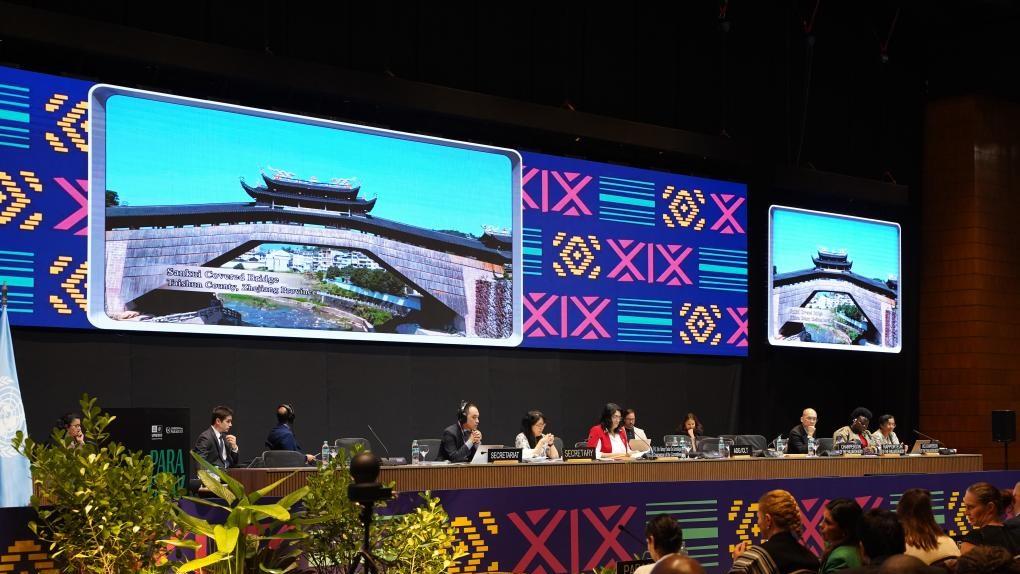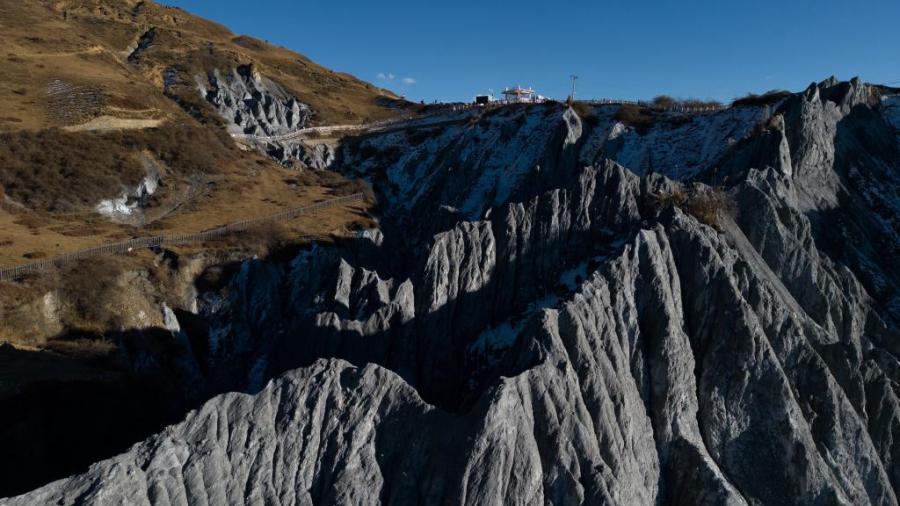How far can Biden's Africa commitments go?

Outgoing U.S. President Joe Biden is pictured during his state visit to Angola in Luanda, Angola, Dec. 3, 2024. (Photo by Julio Kikebu/Xinhua)
The Biden administration's rush to announce significant investments in Angola seems purposeful.
LUANDA, Dec. 6 (Xinhua) -- Outgoing U.S. President Joe Biden visited oil-rich Angola from Monday to Wednesday, fulfilling a two-year-old promise to visit Africa as his term draws to a close.
During his bilateral meeting with Angolan President Joao Lourenco, Biden again brought up his "all in Africa" pledge to bolster trade between the United States and the continent and increase investment.
Biden's promise may not go very far.
Angola, the sole stop on Biden's trip, appeared to be the focal point of his Africa policy, marked by a key investment in the Lobito Corridor -- a railway network spanning over 2,000 km and connecting Angola, the Democratic Republic of the Congo (DRC), and Zambia. It includes the 1,344-km Benguela Railway, and a new greenfield railway planned as a branch line from Angola's existing network into northern Zambia.
The United States plans to invest in a European consortium that won a 30- to 50-year concession for the project as part of Biden's Global Infrastructure and Investment (PGI) partnership.
The Portuguese-speaking African country has never been a traditional "ally" of the United States. Few American companies have invested in Angola's infrastructure, let alone its agriculture, industry, or trade sectors.
The Biden administration's rush to announce significant investments in Angola seems purposeful. In July 2022, a European consortium, including Portugal's Mota-Engil and Switzerland's Trafigura, won a decades-long concession for the Lobito Corridor contingent on building a new railway to Zambia.
However, sources revealed that the European companies hesitated and delayed paying the "entrance fee" after re-evaluating the project's commercial value.
In the first half of 2023, the Biden administration finally seized on the project as an African success story and quickly included it in the PGI.
After Biden's high-profile announcement of large-scale U.S. investment in May 2023 in the project, Angola officially handed over the project to the European consortium in July. After courting "allies" and adding more investments, Biden finally managed to weave the "Lobito story" into his legacy just before his term ends.
However, a March report by Africa Intelligence, a Paris-based publication focusing on African affairs, raised concerns about the U.S. commitment. It noted that the U.S. International Development Finance Corporation (DFC), a state agency financing the Lobito Corridor project, doubted the viability of the greenfield railway.
"The DFC has been studying the commercial interest of the Angola-Zambia segment since last July but is not convinced of its relevance. It would require the construction of an entirely new railway line in both countries, which would be much more expensive than rehabilitating the existing Angolan and Congolese lines," the report said.
Biden's attempt to leave a political legacy in his remaining time in office and invest 4 billion U.S. dollars in the corridor has led some analysts to worry that the next U.S. administration might abandon the hefty commitments made by Biden's government due to concerns over the project's commercial viability and its prior demonstrated bias against African nations.
If the project is abandoned halfway, the biggest losers, aside from the frontline European "allies" involved in its operation, will be the African partners in desperate need of infrastructure development, who may miss their strategic development window.
At the 2022 U.S.-Africa Leaders Summit, the United States committed to advancing two-way trade. However, in the case of Angola, U.S. goods exports to Angola in 2023 fell by 8.8 percent year on year, while U.S. imports from Angola decreased by 26.8 percent from the previous year.
There is ample evidence that, throughout the U.S. commitments to Africa, the United States has never forgotten its own economic or political interests. It has faced accusations of transparency and corruption regarding its multi-million and multi-billion-dollar investments and aid in single projects.
Jose Semedo, an Angolan congressman, recently wrote on the news website Angola24Horas that Western companies, including U.S. firms, reap astronomical profits under the guise of mine clearance.
He said that these Western non-governmental organizations pretend to be active in demining activities while making millions, and despite holding conferences and boasting about their brilliant results, Angolans continue to die.
Photos
Related Stories
- Magnitude 7.0 earthquake hits northern California, triggering brief tsunami warning
- Over 5 million people under tsunami warning after 7.0 earthquake hits northern California
- California to push for finishing new port of entry as Trump threatens border crackdown: report
- Chicken sustains U.S. fast-food chains as cost of beef rises: report
- Ammunition used in CEO's killing in New York City has writing on it: report
Copyright © 2024 People's Daily Online. All Rights Reserved.









